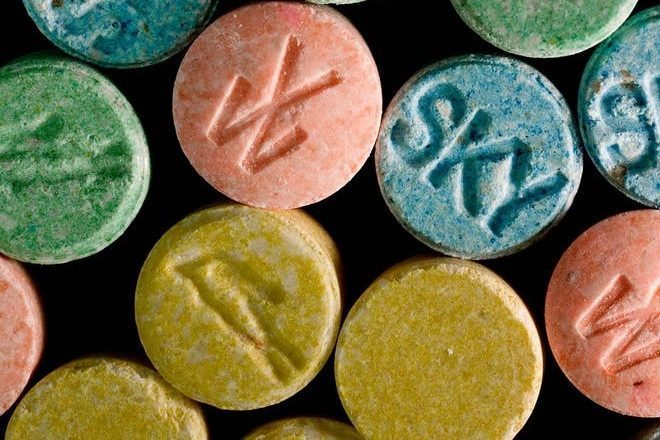Study finds that Brexit is causing an increase in fake ecstasy
A combination of Brexit, COVID lockdowns and increased policing resulted in more fake MDMA across the summer 2021 festival season

New evidence has found that a combination of Brexit, COVID lockdowns and police crackdowns is leading to a rise in fake and potentially dangerous MDMA being circulated around the UK.
Last year, criminologists and scientists discovered that over half of what was believed to be MDMA (ecstasy) sold at festivals in England did not contain any of the substance.
Experts suggest that many of the pills sold as MDMA to partygoers were actually made up of chemicals including cathinone, a novel psychoactive drug (NPS), and caffeine, according to the first peer-reviewed scientific research on the trend.
Read this next: Molly: Everything but the girl
People who have taken these substances report having experienced panic, psychosis and prolonged insomnia.
The academic paper has been published in the journal of Drug Science, Policy and Law and is the first peer-reviewed article to assess these issues. It is headed by research done by The Loop.
They found these results by analysing 1648 surrendered substances with Fourier-transform infrared spectroscopy and colourimetric reagents in a mobile laboratory - as part of a drug testing and harm reduction pop-up.
These analysed substances were assessed during three festivals in 2019 and in 2021. The analytical substance results were compared to a concurrent self-report survey of 1124 participants at the same events.
Between the two years, the prevalence of MDMA in such samples dropped from 93% to 55%. Synthetic cathinones and caffeine both accounted for around a sixth of 2021 samples, while being essentially nonexistent in 2019.
Read this next: MDMA is an effective treatment for PTSD, reveals trial data
The study concludes that: "[There was a] period of unprecedented turbulence in the UK drug market in the summer of 2021 whereby a high proportion of drugs resembling and reasoned to have been sold as MDMA were found to contain cathinones or caffeine."
With the impact of Brexit still being felt on both legal and criminal markets, the scientists warn that suppliers may continue to flood festivals and other gatherings with counterfeit MDMA, putting consumers in danger.
The study also suggests that the Covid lockdowns caused MDMA suppliers to reduce or stop manufacturing. When nightclubs and festivals reopened in the summer of 2021, there was an unexpectedly large demand for "party drugs," but MDMA producers, particularly in the Netherlands, were stagnant to boost supplies.
Read this next: UK government urged to back drug safety testing at festivals this summer
The Guardian reports that Michael Pascoe, a research associate at Cardiff University and co-lead author of the study, said: “This is the first peer-reviewed article that confirms there was an unprecedented shift in the quality of UK ecstasy following Brexit and the lockdowns. As well as noticing this effect at festivals, the study also presents wider UK data that confirms the same effect was seen across the whole country.
“During this unprecedented turbulence in the drug market, substances that look like MDMA were mis-sold to unknowing customers.”
Read the full study here.
Aneesa Ahmed is Mixmag's Digital Intern, follow her on Twitter

Mixmag will use the information you provide to send you the Mixmag newsletter using Mailchimp as our marketing platform. You can change your mind at any time by clicking the unsubscribe link in the footer of any email you receive from us. By clicking sign me up you agree that we may process your information in accordance with our privacy policy. Learn more about Mailchimp's privacy practices here.

 Boiler Room issues statement concerning new owners Superstruct/KKR
Boiler Room issues statement concerning new owners Superstruct/KKR


